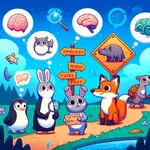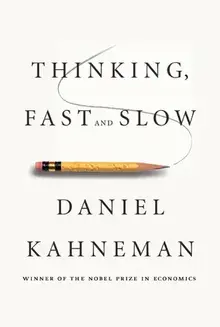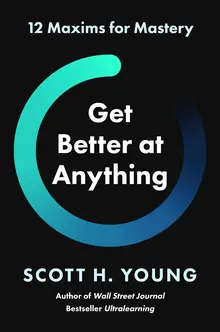Below is an overview of content that matches the tag "thinking".
Note that this list is not exhaustive, as it is automatically aggregated based on manually assigned categorizations.
If you notice a missing element, or think some of the items are wrongfully categorized, please create a bug/improvement ticket on our github issue tracker.
Patterns tagged with "thinking"
Cognitive Biases
We will perceive it, when we believe it
description:Systematic errors in thinking that affect decision-making and perception by creating a subjective reality.
Books tagged with "thinking"
Kahneman, D. (2011) Thinking, Fast and Slow. Farrar, Straus and Giroux. isbn: 978-0374275631.
Get Better at Anything
12 Maxims for Mastery
Young, S. H. (2024) Get Better at Anything. Harper Business. isbn: 978-0063256675.
“Get Better at Anything: 12 Maxims for Mastery” guides readers through the process of mastering a skill using a set of practical maxims.
These maxims include “The best way to learn is to do,” “Experience doesn’t ensure expertise,” “Feedback is king,” and “The mind is not a muscle.”
Young effectively conveys the importance of deliberate practice and the necessity of fast feedback loops in a clear and concise manner.
The author writes in an approachable style, simplifying complex ideas for easy understanding. He debunks widely held misconceptions
and offers practical advice on enhancing the learning process. Filled with real-world examples and actionable insights,
this book is a must-read for anyone looking to improve their skills and serves as a valuable reference for educators,
coaches, and mentors who help others in their learning journey.
Whether you’re aiming to excel in a hobby or advance professionally,
Young’s guidance will equip you with the tools needed for continuous improvement.


